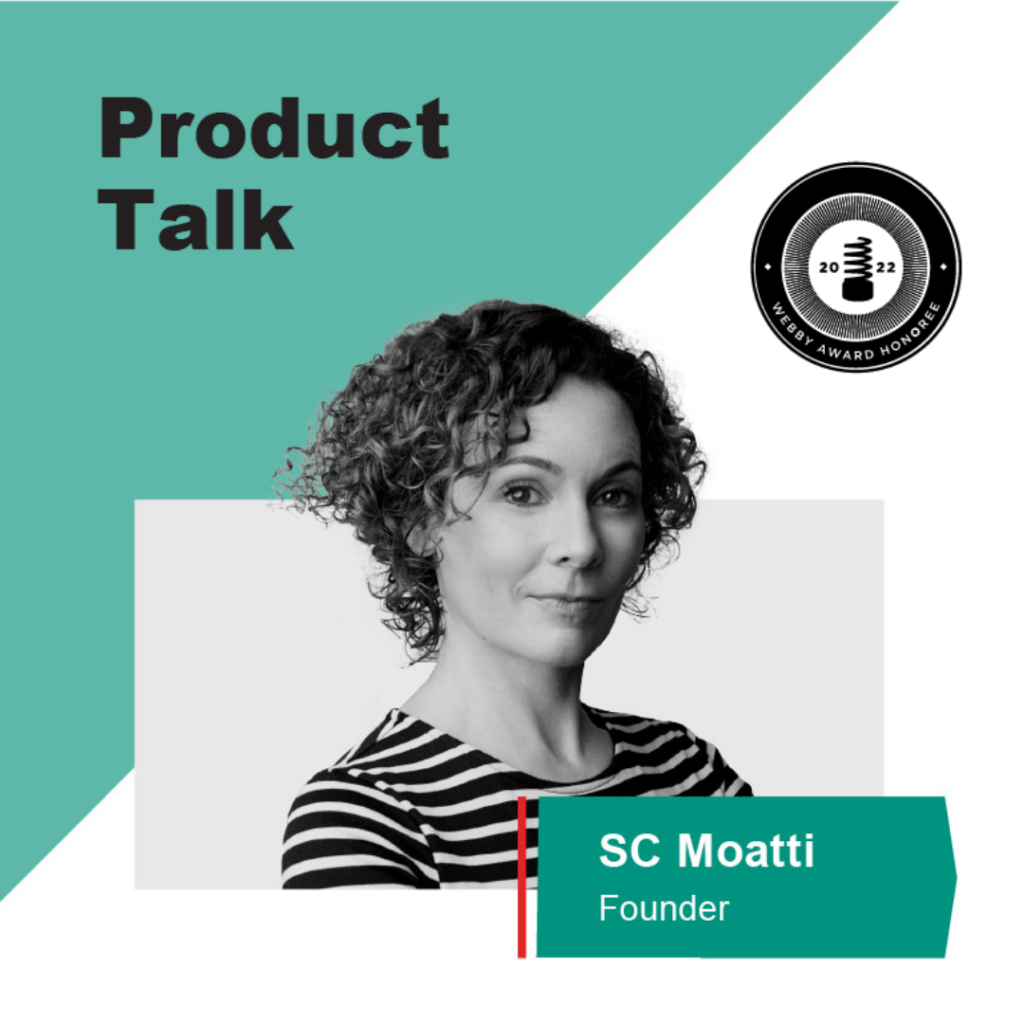“So in my mind, positioning defines how your product is the best in the world at providing some value that a well-defined set of customers cares a lot about..”
– Ambient Strategy CEO, April Dunford, on Product Positioning
As an executive consultant, April Dunford has worked with many companies to fine-tune their sales and marketing teams and position their products. Her experience in product management includes launching 16 products to market. Dunford has 25 years of experience in executive positions across seven technology startups and three global tech corporations. Her marketing and growth expertise has been highlighted in the consultant work she offers for B2B technology companies.
In this episode of Product Talk, host Nikki Ahmadi has the pleasure of speaking with Dunford regarding product positioning and marketing. They thoroughly discussed the differences between positioning and branding, the mistakes often made when positioning a product, and how a startup can adequately position its products match against a tech giant. You can listen to their conversation in the full episode of Product Talk above.
Below, you’ll find an abridged version that puts the spotlight on notable moments throughout the podcast.

The Questions of Product Positioning
When product managers take time to determine their product’s position, they need to ask a few questions. By answering the following inquiries laid out by Dunford, product leaders can more accurately assess their product positioning.
“Positioning is defining who is my competition? What have I got that’s different and better than my competition? What is the value that I can deliver to customers? And who exactly are those customers?”
On Positioning and Storytelling
Where do positioning and storytelling stand concerning one another? Do they work together, or are they completely different concepts? Dunford goes into a little in the podcast, but here’s a quick synopsis of how they relate:
“Once I understand who’s my target customer, that’s the hero of my story. Who’s my competition, that’s the villain. I need that first with my positioning. And then that’s input to storytelling.”
Does Product Positioning Change with the Audience?
So many things relating to product can change over time. Variables alter everything from functionalities to appearance. During the podcast, Dunford discussed the impact the audience can have on product positioning.
“Should you change your response to meeting with investors? This is also a really interesting problem that I see a lot, particularly in early stage startups. You’ll have positioning for your customers, obviously, and you’ll use that to go out and sell. That is not always the same thing as your positioning for investors.”
Dunford continues to elaborate, stating, “Often, when you’re pitching to investors, the conversations you’re having are much more around your vision and where are you going to be later and things that aren’t actually in the product right now but are coming or things you’re going to do with the data you collect.”
She ties it all together, noting how one should treat customers and investors: “I think companies need to be really careful about making sure that those two pitches are separate.”
On ‘Point of View on the Market’
In their pre-discussion, Product Talk host Nikki Ahmadi and Dunford spoke on the “point of view on the market.” Dunford elaborated a bit on that topic, stating:
“For many companies, there’s a thing that your prospect needs to believe in, before you can even pitch them something. And so if you can’t get them aligned around your point of view on that, then there’s kind of no point in trying to sell them anything.”
On Positioning and Beating the Competition
Competition will overshadow a product that isn’t properly positioned. But what does that mean, exactly? What competition do product managers have to consider when determining their product position? Dunford offered this explanation during the podcast:
‘The first kind of competition you gotta beat is what I call the ‘horns.’ You’ve got to figure out how to stand out enough for your people, your best-fit customers.” She continues, “Good strategic positioning helps you do that if you really understand what makes you different and you really understand who your best fit customer is, then your positioning should help make that obvious.”
About the speaker
April Dunford is the founder of Ambient Strategy, but before launching the marketing strategy company, she had a healthy career that spanned multiple positions. After obtaining her Bachelor’s of Applied Science in Systems Design Engineering at the University of Waterloo, Dunford served as Director of Product Marketing at Janna Systems. She moved on from Toronto, Canada and joined Siebel Systems in the San Francisco Bay Area as the Director of Marketing for Financial Services. Dunford also held positions at IBM, DataMirror Corporation, Infobright, Nortel, Huawei, Communitech, Tulip Retail, Sprint.ly, and The DMZ. When not too busy providing market strategies to her clients, Dunford acts as a Board Member for Sampler.
About the host
Nikki is a cloud and software product Director who works with a global team of talented engineers and architects in designing and implementing innovative solutions from product inception to production. After spending over a decade working in product engineering and management for multimillion dollar technology and start-up companies, Nikki believes what truly drives innovation is not only a commitment to technological breakthroughs but also people’s passion in improving everyday lives by building products that leave a lasting impact, disrupt the industry, and are vehicles of change, while providing the best user experience. When Nikki isn’t working on her next big product release or entrepreneurial endeavors she is spending much needed time with friends and family discussing the latest politics, or simply the meaning of life. She’s an adventurous traveler who also enjoys capturing moments through photography. Nikki also holds a B.S. in Computer Engineering , M.S. in Electrical Engineering and has a corporate innovation certificate as part of the LEAD program.